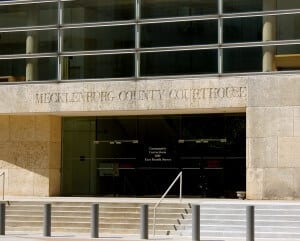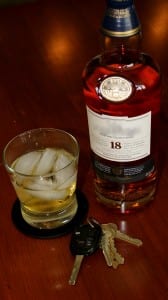Breathalyzer accuracy is still an open question in scientific circles. Hence the legal community should also be asking for more definitive data. Anyone remember the old lie detector machines? As a result, any breathalyzer results and even breath test technology must be challenged at trial. After all, if you get a jury to question the reported BAC level, they could find you not guilty. That’s where we come in. We are Charlotte DUI lawyers dedicated to holding the State accountable and protecting your rights.
Breathalyzer Accuracy Defense Strategy
 Due to federal requirements, the current “minimum legal limit” is a blood alcohol concentration (BAC) .08 or greater. Seems like just a few years ago, it was 0.10. And you could drink legally at age 18. Since then, a lot has changed with public perceptions of drinking in general. Maybe the 1981 movie “Arthur” would not be as funny today. Furthermore, there are groups who want to lower the limit even further to 0.05%. Of course, such arbitrary number has little to do with actually being drunk, intoxicated, or impaired. Rather, it just makes it easier to arrest and convict someone for DWI. Don’t worry. DUI defense is what we do.
Due to federal requirements, the current “minimum legal limit” is a blood alcohol concentration (BAC) .08 or greater. Seems like just a few years ago, it was 0.10. And you could drink legally at age 18. Since then, a lot has changed with public perceptions of drinking in general. Maybe the 1981 movie “Arthur” would not be as funny today. Furthermore, there are groups who want to lower the limit even further to 0.05%. Of course, such arbitrary number has little to do with actually being drunk, intoxicated, or impaired. Rather, it just makes it easier to arrest and convict someone for DWI. Don’t worry. DUI defense is what we do.
Since most DUI cases have a reported BAC level, breathalyzer accuracy is a key defense. In North Carolina, refusing breath testing can result in a forced blood draw. That’s right. Dare to exercise your right to refuse, and the State can stick a needle in your arm. Even against your will. Let that reality sink in for a moment. So how does the breathalyzer machine actually produce a number? First of all, it takes a small breath sample and estimates how much alcohol is in it. And then, the machine runs another computer program to then estimate how much may be in the blood. In addition to estimating, breathalyzers all use the same generic formula for everyone. Yet these same officers tell us alcohol affects individuals differently?! Seems like the State want to have it both ways.
 Margin of Error and Breathalyzer Accuracy
Margin of Error and Breathalyzer Accuracy
While police officers know how to operate the machine, they know very little else. Seems like they should be able to explain how it actually works. How a breath becomes a number. Instead, they memorize a few procedures and boldly claim it is accurate. But that’s about it. Yet the State has the burden of proof. And the BAC level is critical to their case. So how does the State prove its case beyond a reasonable doubt? Keep reading. We show you how bad this gets.
First of all, we know breathalyzers are not as accurate as blood tests. How do we know? Because breathalyzer manufacturers and prosecutors would use this fact if true. But they cannot. Instead, prosecutors put on a show with all the “bells and whistles.” They talk about diagnostic testing, certificates, maintenance, and the actual testing steps. As a result, the jury is deluged with information overload. Consequently, the distraction makes the simple complex. And the jury defaults to the State. Don’t buy it. It’s just smoke and mirrors. Next, we show you the real numbers.
Breathalyzer Accuracy Percentages
Here’s how this works. Before evaluating a sample, the machine runs a self-diagnostic test. The State claims that the machine tells you if it is not working properly and shuts down. However, “working properly” allows a 0.01 difference when checking accuracy. Pre-test. So in measuring 0.08, that is a 12.5% permissible margin of error before you begin. Next, the State says each of two samples tested have to be no more than 0.02 apart. And we frequently see different readings just a few minutes between tests. Consequently, under State guidelines, you can have up to a 0.03 allowed margin of error testing for 0.08. As a result, the true margin of error is up to 37.5%. Now that is reasonable doubt no matter how you slice it. Maybe close enough for government work but not enough to convict.

Aaron Lee PLLC
The attorneys at Aaron Lee PLLC focus their criminal practice on DUI and felony DUI defense. As a result, we understand the issues and anxieties involved. Seems like the world turned upside down in an instant. But try not to worry. Because we help people just like you get through a DUI arrest. And just remember that DUI is a process. Consequently, we explain what you are facing and how we can help. Call any of our Charlotte DWI lawyers today. Let us help. You’re going to feel better after we talk. So call now.
*Because of our commitment to excellence, we support the National Trial Lawyers and National College for DUI Defense.

 Margin of Error and Breathalyzer Accuracy
Margin of Error and Breathalyzer Accuracy